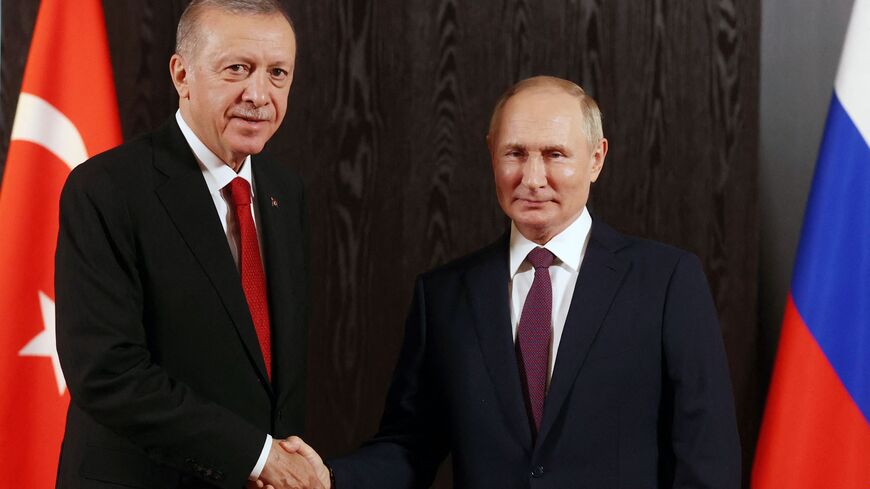ANKARA — Turkey’s President Recep Tayyip Erdogan announced Wednesday that the Black Sea deal that allows Ukraine, the world’s top grain supplier, to export to world markets would continue. The extension grants Turkish strongman a win, 11 days before the runoff vote against Kemal Kilicdaroglu.
Addressing his party in Ankara, Erdogan said Ukraine and Russia had agreed to extend the deal for two more months. “With the efforts of our country, the support of our Russian friends and the contributions of our Ukrainian friends, it was decided to extend the Black Sea grain corridor agreement for two more months,” he said, describing the deal as “critical” for global food supply chains.
Erdogan described Putin as his “dear friend” as he thanked Putin, Ukrainian President Volodymyr Zelenskyy and UN Secretary General Antonio Guterres for the extension. “I would like to express my gratitude to the president of Russia, my dear friend Mr Putin, for his efforts in this process. I would also like to thank President of Ukraine Mr. Zelenskyy for his constructive cooperation. I also thank the UN Secretary-General, Mr. Guterres, for his efforts in the process,” he said.
The Black Sea Grain Initiative was brokered by Turkey and the United Nations last year after the Russian invasion cut off exports from Ukraine, one of the major breadbaskets of the world. The deal, which allayed concerns over a global food crisis as grain prices skyrocketed, has been extended two times since it was agreed on in July 2022.
The third extension announcement came as campaigning heats up again in Turkey. Erdogan and his top rival main opposition leader Kemal Kilicdaroglu both failed to cross the election threshold in the first round of the critical presidential race. The two frontrunners will face each other in a May 28 runoff vote to determine whether Erdogan will extend his authoritarian rule into another term or Western-friendly Kilicdaroglu will usher in a new era in the country.
Erdogan's personal ties with Russian President Vladimir Putin have been raised by the Kilicdaroglu-led opposition several times over the campaign period. Last week, Kilicdaroglu accused Russia of fabricating deepfake sex videos that forced another presidential candidate to withdraw from the race. The Kremlin staunchly rejected the accusation, labeling Kilicdaroglu’s sources as "liars."
Defending Putin, Erdogan lashed out at Kilicdaroglu over his accusations, saying his country’s ties with Russia were no less important than its ties with the United States.
Earlier this month ahead of the May 14 polls, Turkey’s energy minister announced that the Russian energy giant Gazprom had agreed to defer a portion of Turkey’s natural gas payments, confirming earlier reports.
Citing that deal and other opaque agreements between Erdogan and Russian President Vladimir Putin, Turkey’s opposition parties have argued that the Kremlin was working to strengthen Erdogan’s hand as the Turkish president faces his toughest reelection bid in more than two decades in power amid skyrocketing inflation and a cost-of-living crisis.






